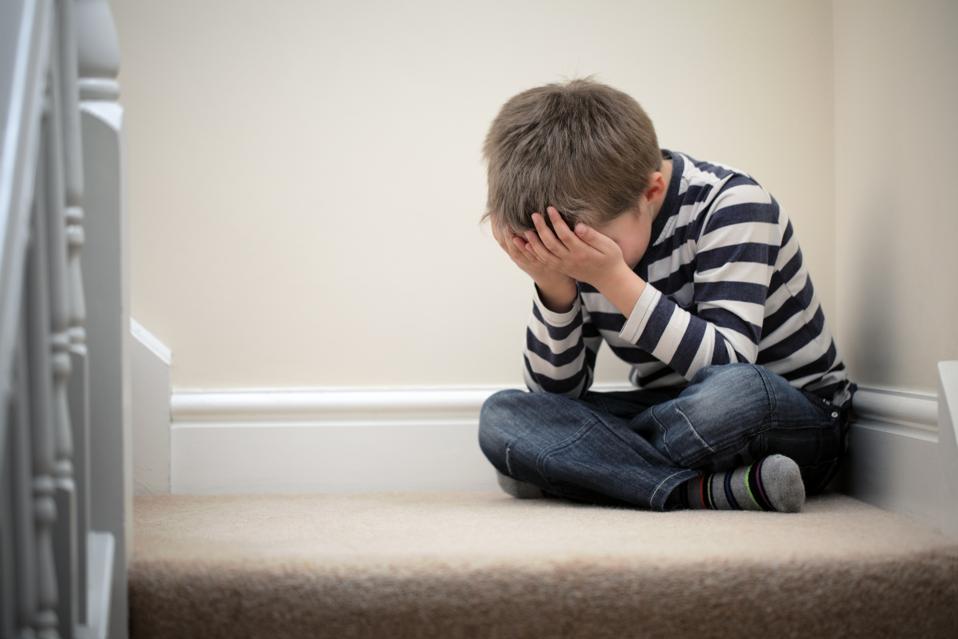Building robust employment pipelines and a mentally resilient workforce means investing in the mental health of children.
We hear a lot about the mental health crisis many young workers are facing today, along with employers’ responsibility to provide meaningful support in overcoming these challenges. A connection less often made is that for many of these young people, the mental health issues they struggle with have been part of their lives, in one way or another, since childhood.
It’s logical that kids don’t magically graduate from their mental health challenges along with high school and college. The students of today will grow up to become tomorrow’s workers, and if we fail to support their mental health at a young age, that need will only grow as they do.
So just how serious is the mental health crisis among children? “It’s not new—it’s been growing for years,” says Joan Steinberg, President of the Morgan Stanley Foundation and CEO of the Alliance for Children’s Mental Health Advisory Board. “Approximately 1 in 5 kids have a mental, emotional, or behavioral disorder. Last year, over 2.7 million young people in the U.S. experienced severe depression—with 60% of youth who experienced a major depressive episode receiving no treatment.”
Fortunately, there’s hope. I recently connected with Steinberg to discuss Morgan Stanley’s new $20-million commitment to kids’ mental health—and how business leaders can take a proactive approach to safeguard their future workforce in this area. Here’s what we covered.
The employment connection
Steinberg points to a myriad of factors contributing to the mental health challenges of today’s children. “Kids are facing mounting pressure to perform in school, portray their best selves online, live up to family expectations, face financial hardships, and enter a job market that has become increasingly more challenging to navigate,” she says. “Additionally, the pandemic has affected children’s well-being in many ways, as have increased screen time, interactive digital environments, and increased family internet use.”
What’s chilling is that 75% of mental health disorders happen before the age of 24. “According to the CDC, children who face mental stress early on in life could face complex challenges as adults, including struggling to form healthy relationships, difficulty with finances and sustaining employment, and an increased risk of facing life-long depression,” says Steinberg.
The implication is clear: building robust employment pipelines and a mentally resilient workforce means investing in the mental health of children.
“Not addressing these issues—especially early on—can have massive ripple effects in our society,” says Steinberg. “From a business perspective, it’s been estimated that serious mental illness costs the U.S. economy more than $190 billion in earnings.”
But more importantly, the fallout of these unaddressed struggles is the loss of lives. “The CDC’s 2022 provisional data cites more than 6,000 kids and young adults ages 10–24 died by suicide in 2022,” says Steinberg. “That is unacceptable—and it’s on all of us to change this trajectory for the better.”
A new commitment
To build mentally resilient kids, Steinberg believes we need to give them the tools to navigate their emotions, cope with stress, and understand how their mental state impacts their daily lives.
“At Morgan Stanley, we are doubling down on our commitment to these causes with a special focus this year on early intervention and prevention methods,” she says. “Through our Alliance for Children’s Mental Health, we help build systems at schools and colleges, early education centers and physician’s offices enabling them to better address the needs of youth and drive positive change. To date, our work has benefitted over 37 million children, caregivers and educators globally.”
For parents, who play a pivotal role in supporting their children’s mental health, Steinberg offers two pieces of advice that can be implemented immediately:
“Create an environment at home where your kids can come to you and feel like they’ll be heard,” she says. “Actively and non-judgmentally listening helps make children feel safe to bring up their concerns before they become larger problems. It also allows parents to see how their children are doing, help navigate their problems and escalate to professional help when needed.”
“Listening and encouraging additional healthy habits—such as putting screens away, eating a balanced diet, exercising and getting a good night’s rest—is only as productive as setting an example for them,” Steinberg urges. “It can be difficult at times, but if we want to ensure a healthy future for our children, we need to take a step back and see how we’re ensuring a healthy future for ourselves, too.”
Safeguarding the future workforce
If the idea of roughly 20% of your future workforce dealing with a mental, emotional or behavioral disorder isn’t appealing to you, now is the time to start investing in the mental health of the youngest generation.
“Collaboration is essential,” says Steinberg. “We urge other funders and corporations to invest in youth mental health and help close the significant funding gap. The last several years have made it clear how dire the situation is. The youth mental health crisis cannot be solved quickly, but it deserves and requires our concerted action right now.”
This involvement can take many forms, whether it’s starting a new program or seeing how mental health overlays with the philanthropic or advocacy work you’re already doing. The important thing, says Steinberg, is to take action now.
“Advocacy and philanthropic funding are vital as we look to improve early identification and intervention, access to care and equity in mental health and, ultimately, secure a brighter future for our next generation.”
Children’s mental health should be an issue that we can all rally around—for the good of our kids, our communities and our larger economy. Together, we can build a brighter future for the next generation.

